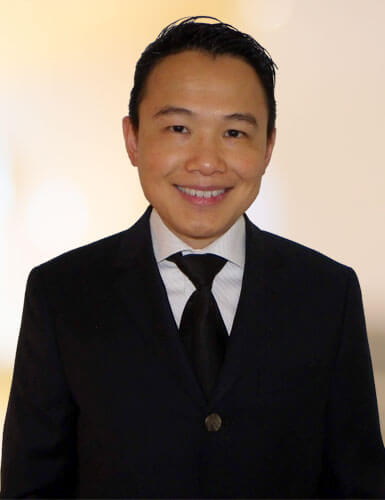Pediatric dental care in Barrie, or: Into the Mouths of Babes
Posted: August 31, 2013
Last Modified: December 21, 2020
When should my child’s first dental visit be? How many baby teeth are there? Why are baby teeth important? What happens when a baby front tooth turns dark? These and other common questions about pediatric (children’s) dentistry in Barrie are answered below.
First off, baby teeth are important! There are normally twenty of them, and they come in gradually between the average ages of six months and two years. Have your child come in for an initial oral/dental examination by the age of one year. That is the age recommended by the Canadian Dental Association – at that age, cooperation is not great, but we are checking on basic development and ensuring they the proper oral home care regimens are being provided. It will also give him/her some familiarity with the dental office setting – bringing your child in while you have a hygiene appointment is also a good idea – it can be an opportunity to see you having work done, as well as an opportunity for a chair ride.
What are the things that a dentist checks during a first oral/dental exam?
The obvious answer would be the checking for cavities in the teeth. Baby teeth are more susceptible to decay due to a lower degree of mineralization than permanent teeth, they are smaller, and they also possess less enamel thickness, the most decay-resistant part of a tooth. An area of decay considered small on an adult tooth could be large on a baby tooth, and it would progress more quickly in a baby tooth.
This is not the only thing! Of equal importance to pediatric dentistry are the following:
1) oral hygiene: is the child’s mouth being cleaned as well as it could be? Are there suggestions that we can offer in the way of oral hygiene aids or dietary regimens?
2) oral pathology: are there any tumours or other anomalies that we need to worry about?
3) growth and development: are the jaws developing normally? Are there asymmetries / deformities being caused by habits such as mouth-breathing, thumb-sucking, or perhaps abnormal growth? Are there treatments that can correct these things before they become bigger problems down the road?
Why are baby teeth important anyways? Won’t they just be lost and be replaced by permanent teeth?
We still get that question, and it is reasonable to ask. The answer has many parts; here are some obvious ones:
1) baby teeth can get infected just like permanent teeth. Infections can lead to significant pain, time lost from school, and may even become life-threatening. Simple preventive dental measures can save a child from unnecessary risk. A baby tooth infection can also spread to an underlying permanent tooth and damage it during development.
2) baby teeth are important for the development of function, whether that is speaking or proper chewing /swallowing patterns.
3) baby teeth serve as space holders for the incoming permanent teeth. From maintaining a “spot” for a permanent tooth to come into, to maintaining an adequate dental arch width, baby teeth are important for normal orofacial growth and development. It is ideal to be able to keep the baby teeth until they are naturally lost.
4) sometimes the permanent teeth are missing! Many people are naturally missing permanent teeth – for one reason or another, some permanent teeth fail to develop. For obvious reasons, these baby teeth become long-term management issues beyond pediatric dentistry.
My child’s front tooth has turned dark! What do I do?
Bring in your child to a dentist to determine if the darkness is due to decay, trauma devitalization, or some other cause. All sorts of kids are walking around with dark teeth, and while not normal, they are not infected and often we just recommend leaving them as is. Still, it is best to get it checked out by a dentist first. If it has gotten infected, extraction of the tooth is often the best treatment.
Why are the permanent teeth yellower than the primary (baby) teeth?
This is normal. Permanent teeth have a greater thickness of dentin beneath the enamel surface. Because dentin is yellow, the colour shows through the enamel and makes the teeth appear darker. Do not worry! However, if a single tooth is darker, or there are bands of darkness throughout the permanent teeth, this may be the result of prior injury during tooth development, or perhaps certain medications that were taken while the teeth were developing.
What type of toothpaste should I use for my child?
When an infant’s teeth are just emerging, cleaning them with some wet cloth or gauze (as long as it is clean) is adequate. Some time later, brushing with a wet manual toothbrush may be the simplest way for you. Toothpaste is not required at this time. Once the child’s teeth have been in for a bit longer, and regular food is introduced (say, at one year of age), then toothbrushing with regular fluoride toothpaste is fine with one caveat: use very little! Since infants cannot spit on command, one does not want them to swallow the toothpaste. When we say very little, we mean the size of 2-3 grains of salt (almost invisible). Not only that, we recommend gently rinsing off the brush before using it in the mouth. If you are seeing foaming, it’s too much. If you are concerned that your child is still swallowing too much, there are fluoride-free toothpastes on the market (expensive). We do not recommend these for long-term use. It has also come to our attention that some fluoride-free toothpastes made for children actually contain honey. Read the ingredients, and avoid those toothpastes.
If your child will tolerate electric toothbrushes, go for it! Dr. Wong has used adult electric toothbrushes on his one-year olds. If you get them used to it early, you will have an easier time of brushing their teeth later!
Finally, remember to floss. Children’s teeth can trap food just like adult teeth, and will decay more quickly. It is important to keep the teeth well flossed in order to prevent cavities in between the teeth. These are only detectable early if an x-ray is taken, but oftentimes children are not cooperative enough to bite onto a dental x-ray film (or digital sensor) and hold still. This means that some decay gets quite large before it is even diagnosed. From a practical point of view, flosspicks may be your best bet.
We recognize that dentistry is complicated, and the average parent cannot be expected to know all about pediatric dentistry. If you have questions, or would like your child to have a complete dental examination, please contact us! We’d love to be your (and your child’s) dentist in Barrie.


